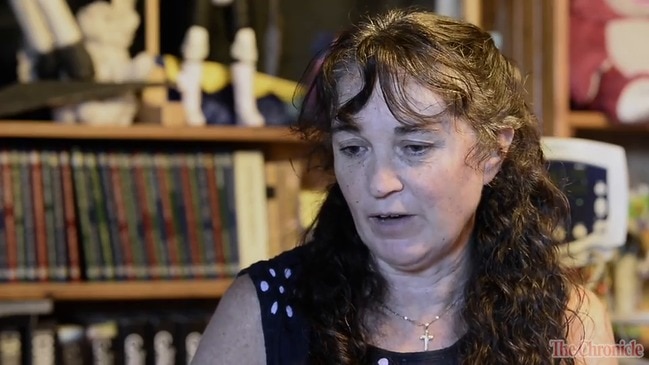NT intellectually impaired man indefinitely detained, subject to shackles, chemical restraints
THE Disability Royal Commission has heard evidence about a Central Australian Aboriginal man with significant intellectual impairment who has been subject to “severe” treatment including chemical restraints, shackles and seclusions during his more than 15 years in prison.

Politics
Don't miss out on the headlines from Politics. Followed categories will be added to My News.
THE Disability Royal Commission has heard evidence about a Central Australian Aboriginal man with significant intellectual impairment who has been subject to “severe” treatment including chemical restraints, shackles and seclusions during his more than 15 years in prison.
MORE NEWS
Michael Gunner goes into self-isolation after becoming unwell during Bombing of Darwin ceremony
Several thousand people gather to commemorate Bombing of Darwin at Esplanade Cenotaph
Woman seriously injured after being hit by car in Fannie Bay
“Winmartie” (not his real name), aged in his early 30s, was living in a remote community in Central Australia before being arrested at age 16 after killing a family member.
He was found guilty of manslaughter after he was deemed unfit to plead, and it was ruled he be subject to an indefinite custodial supervision order.
He was transferred to the high security adult prison at age 17 despite concern from his legal guardian that he “wasn’t capable of managing” in such an environment because of his complex needs.
Winmartie was eventually transferred to a Secure Care Facility in 2018 after a significant delay and a period of moving him between the facility and back to jail.
The Commission heard from one of Winmartie’s family members, who said he suffered traumatic events while in custody including an incident where he was put in a restraint chair and had his face covered “with a cloth.”

The family member also said he was often heavily sedated with what she described as “shut up medicine” at times when she was permitted to visit him or when he was permitted to visit his home community.
Winmartie’s legal guardian said the prison was catering to his security classification because of the crime he committed, rather than his disability needs.
“Thus he wasn’t allowed out of his cell very often. I think that there was a long period where he spent 23 out of 24 hours in that cell,” he said.
“And when he was out of that cell to go from one part of the prison to another, he would be shackled.
$1 FOR ALL YOUR NEWS? Sign up now to our amazing deal of $1 for 28 days
His guardian also said Winmartie would often bang his head against his cell wall, resulting in him being put in a restraint chair and tranquillised.
The Commission will continue to hear evidence on Winmartie on Monday.


